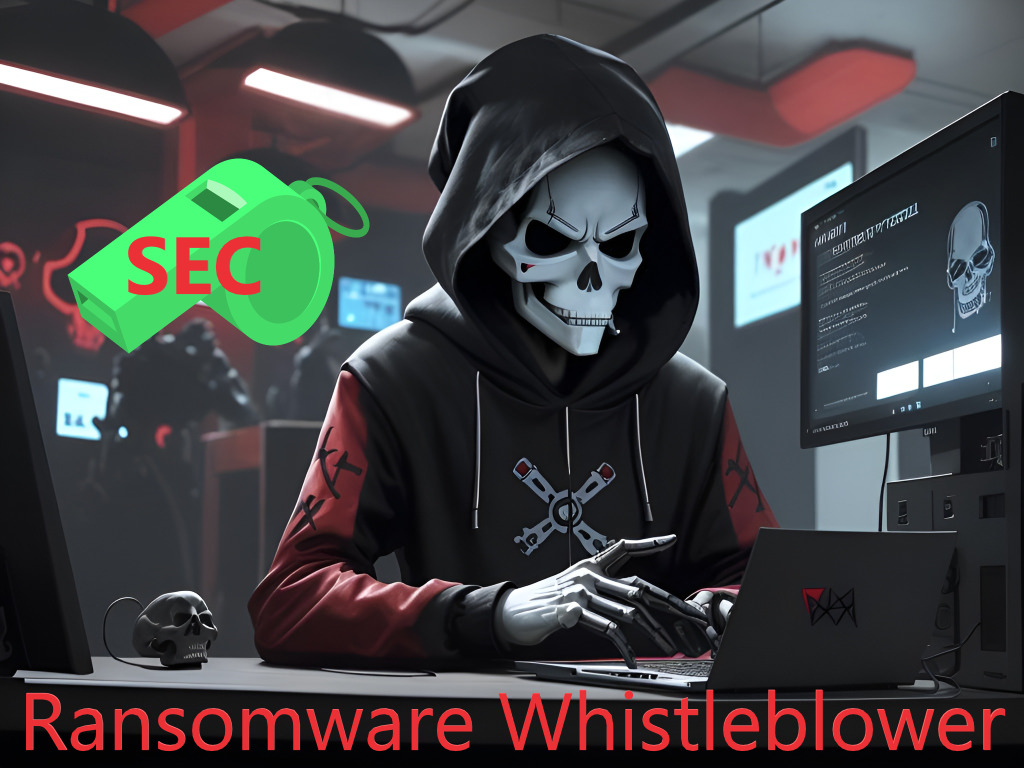
Once upon a time, ransomware was like the annoying cousin at a family reunion – it showed up, made a mess by encrypting your data, and demanded money to leave you alone. But like that cousin who learns new tricks to annoy you, ransomware is evolving.
Enter ALPHV (also known as “BlackCat”), a ransomware group that’s decided if you can’t beat ’em, join ’em… sort of. In a twist that feels like a plot from a cyber-crime movie, they’ve filed a complaint with the SEC (yes, the Securities and Exchange Commission) against one of their victims, MeridianLink. Why? Because apparently, MeridianLink didn’t spill the beans on their data breach quickly enough under new SEC rules.
Here’s the bulleted summary of this cyber saga:
So, what’s the big deal here?
It seems ransomware gangs have a new extortion method in their bag of tricks. Whether they expected to get a ransomware payment out of MeridianLink is not the issue here. BlackCat is setting a precedent so future attacks will be reported if the ransom is not paid because bad actors will report you if you don’t. The precedent will undoubtedly add weight to a Ransomware threat that you either “Pay up, or be reported to authorities.” The arm-twisting by hackers just got a regulatory boost! SEC be careful what you wish for with your legislative might. This move by ALPHV signals a treacherous twist where cybercriminals use legal frameworks to pressure their victims into payment.
As Patrick Tiquet warns, “Using the threat of filing a ‘failure to report’ complaint…to the SEC is a compelling tactic that could weaponize a government regulation for a cybercriminal group’s benefit.“
The best approach to Ransomware is to prevent it from happening to begin with. That boils down to three simple approaches:
In conclusion, in the article “ALPHV Playing Cop and Robber at the Same Time,” we see a glimpse into the future of ransomware attacks. It’s no longer just about securing your digital fortresses. It’s now also about navigating the treacherous waters of legal obligations. Hackers are getting smarter and bolder, and turning into SEC snitches to grease future extortion requests. As prevention techniques evolve and get better, ransomware gangs also evolve extortion techniques to ensure every last successful breach pays up.
Are you ready? Are you doing everything possible to avoid being the next news story? The time to prepare your company and protect your data is today, ahead of a breach. As Benjamin Franklin once said (in his case about fire prevention): “An ounce of prevention is worth a pound of cure.” It is as true today about cybersecurity breach prevention as it was 200 years ago on fire prevention.
Source:
https://www.darkreading.com/risk/alphv-ransomware-group-files-sec-complaint-against-own-victim
Discover and share the latest cybersecurity trends, tips and best practices – alongside new threats to watch out for.

Cyberattacks usually start with phishing emails or weak passwords. This one did not. Security researchers...
Read more
Not surprising when Trouble Ensues Last summer, the interim head of a major U.S. cybersecurity agency uploaded...
Read more
And How to Fix Them Let me make an educated guess. You moved to Google Workspace because it was supposed to...
Read moreGet sharper eyes on human risks, with the positive approach that beats traditional phish testing.
